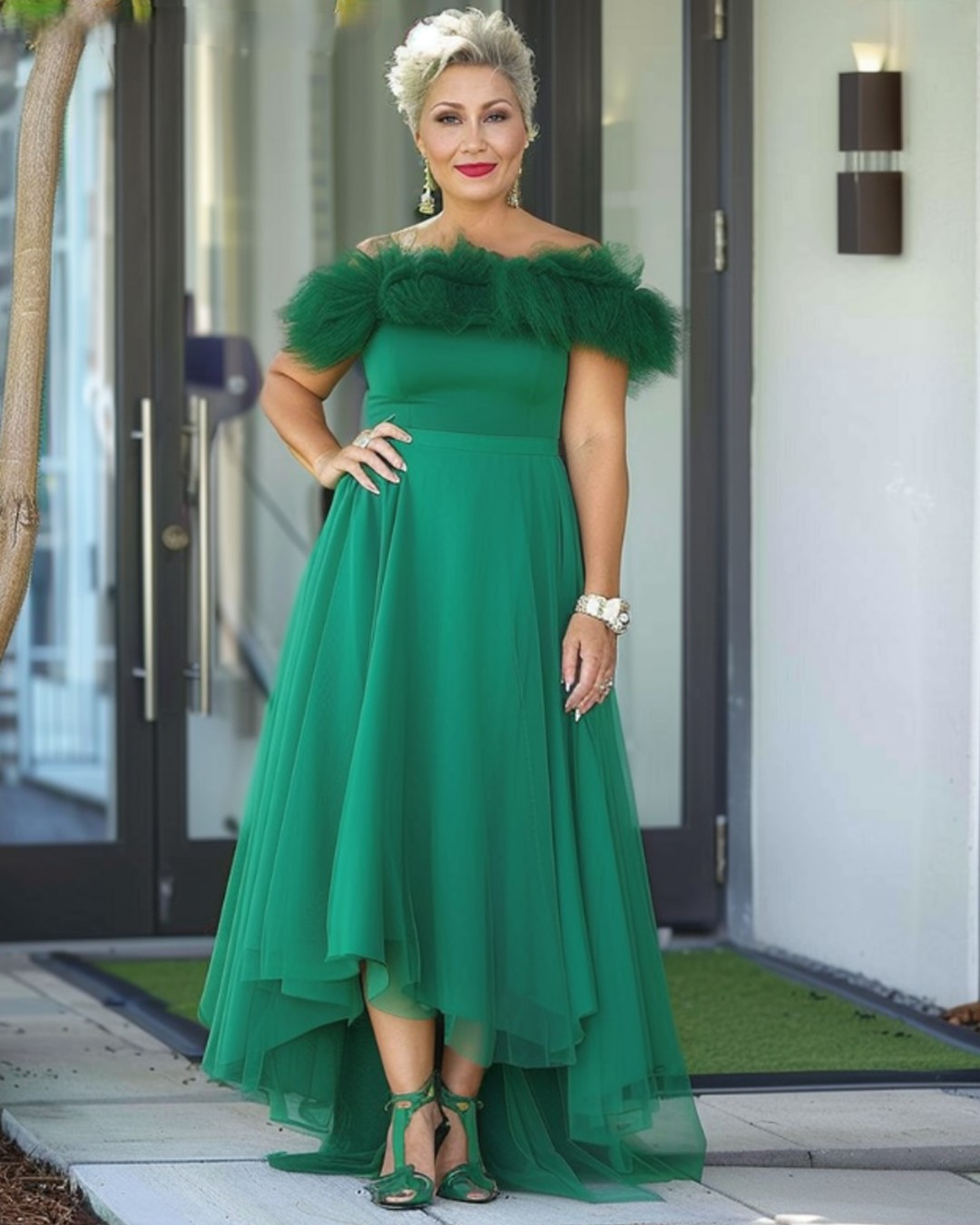Bride Claimed I Destroyed My Son Wedding Because of My Outfit Choice, Was I Really Wrong Here

Claire had always envisioned herself as the glamorous mother-of-the-groom. She looked forward to celebrating her son’s wedding with pride, but when her soon-to-be daughter-in-law Alice had her own vision for the day, Claire struggled to accept it. What started as a minor difference of opinion spiraled into a conflict that neither expected.
All I wanted was to be the perfect mother to my son, Mark. As his wedding approached, I was eager to make the day as special as possible—not just for him, but for all of us. What I didn’t anticipate was how my desire for perfection would lead to a day none of us would soon forget.
When Mark introduced us to Alice, I was surprised by how different she was from the woman I thought he would marry. My son, a serious and hardworking lawyer, had always been focused on his goals. Alice, on the other hand, had a free-spirited, creative energy. She was a self-taught coder, content with the quiet, cozy life they shared in their small apartment. Despite their differences, they made it work, and when Mark proposed, I was happy for them.
Mark invited us to the proposal, knowing how important family was to Alice, who didn’t have much contact with her own. “It’ll mean a lot to her to see you and Dad there,” he said, his voice full of hope.
Touched by his words, I offered to pay for the wedding. My husband James and I had saved for Mark’s education, but with his scholarships and bursaries, he hadn’t needed much financial help. “Let’s use that money for the wedding,” I told James. It felt like the right gesture, a way to show our support.
Alice and I had always been polite, but we didn’t share much in common. As we began planning the wedding, it became clear that our ideas were miles apart. Every decision—flowers, colors, decor—seemed to lead to a clash. I wanted timeless elegance, while Alice leaned towards modern and unconventional choices.
“Roses are classic,” I suggested during one meeting. But Alice, sipping her tea, replied, “They’re overdone. We’re thinking of peonies instead.”
We struggled to find common ground. Frustrated, I finally asked, “At least let me know what color the bridesmaids will wear, so I can coordinate my outfit.” Alice assured me they wouldn’t be wearing green, and I decided to step back from the details, leaving her to plan the day as she saw fit.
A few weeks later, Alice texted me excitedly from her wedding dress shopping trip, sharing pictures of her top picks. I couldn’t help but feel a bit left out. I had hoped to be more involved, to bond with her over such an important decision. When I saw the dresses, none of them felt right for the elegant wedding I had envisioned, especially her favorite. Gently, I suggested she consider a different option, thinking my financial contribution might carry some weight.
Her response was clear: “This is the dress I’m choosing.” I felt slighted, but James reminded me to focus on my own role. “Let them plan their wedding,” he said. “Just concentrate on finding something you’ll feel beautiful in.”
Taking his advice, I went dress shopping. I found a stunning emerald green gown that made me feel radiant, confident, and elegant—everything I had hoped for. James loved it, and I felt ready to take on my role in Mark’s big day.
On the morning of the wedding, I arrived at the venue, wearing my green dress, feeling proud and prepared. But when I entered Alice’s dressing room to congratulate her, her face fell. Her excitement evaporated as she stared at me, tears welling up in her eyes.
“Why did you do this?” she cried, her voice shaking.
Stunned, I asked what she meant.
“Your dress!” she exclaimed. “It’s the same design as my wedding dress, just in green!”
I was speechless. I hadn’t realized the resemblance, but to Alice, it seemed like a deliberate slight. She accused me of trying to outshine her on her special day, of making the wedding about myself. I tried to explain that it was an honest mistake, that I hadn’t noticed the similarities, but Alice was too upset to listen.
Mark, having overheard the commotion, rushed in. He looked between us, unsure of what to say. “Mom, please,” he begged, “Let’s just get through the day.”
I left the room feeling defeated. I hadn’t meant to hurt Alice, but my choices had overshadowed her moment. As the day went on, I kept my distance, not wanting to cause any more tension. The celebration continued, but the weight of what had happened lingered.
Looking back, I can see how I let my desire for control and my own vision of the day cloud what was truly important—Mark’s happiness and Alice’s feelings. I should have been more open to Alice’s preferences and allowed her the freedom to plan her wedding without interference. It was her day, not mine.
Was I wrong? Perhaps I was. In trying to make the wedding perfect, I lost sight of what really mattered: my son’s love and respect for his new wife, and the bond we were meant to build as a family.